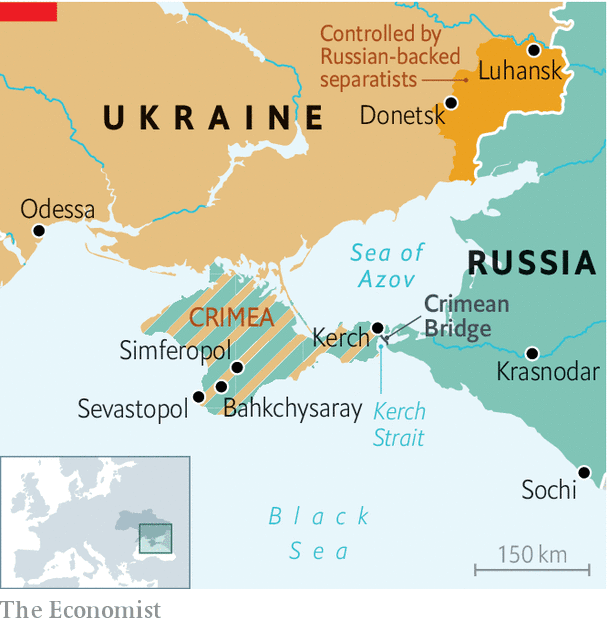
By Francesca and Giovana
Crimea is a semi-autonomous province of Ukraine, located in the south of the country. The population of Crimea uses the Russian language and establishes more relations with Moscow than with Kiev, which ends up creating a scenario of political instability in the region. Ukraine began to experience internal problems when it reversed an agreement with the European Union. Such action had Russian influence, because the Russians did not welcome this agreement, as the Ukrainians were its main trading partners on the European continent. Thereby, grupos opositores a Viktor Yanukovich, president at the time, started a wave of protests through the streets of the country. After a few months of tension, Mykola Azarov, Prime Minister, resigned from the post and shortly thereafter, o President Viktor Yanukovich, fled to russia, after opponents take over the seat of government. The east and south regions, more industrialized and populated, housed many russians, who ended up opposing the pro-Europe protesters. Crimea was the one that experienced the greatest tensions and instabilities, mainly with the government's action to unofficialize Russian as a local language. The Russian parliament approved the sending request made by Vladimir Putin, to send troops to Ukraine. EU countries and the US, in order to punish Russia, initiated a policy of articulation of a probable economic and/or commercial blockade with the same.
It is important to mention that Crimea was annexed by Ukraine in 1954, when Soviet leader Nikita Khrushchev ceded it in a friendly manner. Russian military actions were watered by an economic and commercial interest, for the region is configured as a great way between the Black Sea and the Sea of Arzov, in addition to being a large producer of grains and processed foods. In contrast, Europe and the USA seek to reduce Russian influence in regions formed by countries that were part of the former USSR.
To this day, the issue of Moscow having handed over the peninsula to Ukraine is a mistake, since there was no consultation with the local population. However, a movement calling for greater autonomy on the part of Kiev emerged., and it was taken for granted that it almost definitely belonged to Ukraine.. Soon after, a referendum in the region gave victory to the large image of votes, which was contested by Ukraine, USA, EU. Since 2015, the armed forces receive training from NATO and US military assistance and yet are not considered a match for Russian forces. However, Russia has no intention of attacking.
By analyzing the above, it could be concluded that the reasons that made Ukraine interested in retaking Crimea were mainly economic and commercial interests. However, it is a conflict that needs to be resolved as soon as possible., as it affects countries and people, in addition to also affecting Ukraine's entry into NATO, since Russia is making such entry difficult, and cause several internal disputes between those involved even in order to appease the situation.
To this day, the issue of Moscow having handed over the peninsula to Ukraine is a mistake, since there was no consultation with the local population. However, a movement calling for greater autonomy on the part of Kiev emerged., and it was taken for granted that it almost definitely belonged to Ukraine.. Soon after, a referendum in the region gave victory to the large image of votes, which was contested by Ukraine, USA, EU. Since 2015, the armed forces receive training from NATO and US military assistance and yet are not considered a match for Russian forces. However, Russia has no intention of attacking.
By analyzing the above, it could be concluded that the reasons that made Ukraine interested in retaking Crimea were mainly economic and commercial interests. However, it is a conflict that needs to be resolved as soon as possible., as it affects countries and people, in addition to also affecting Ukraine's entry into NATO, since Russia is making such entry difficult, and cause several internal disputes between those involved even in order to appease the situation.
